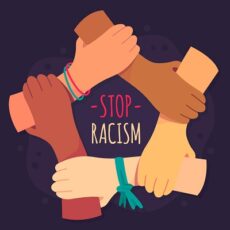
Australia, with its rich cultural tapestry, recognises the fundamental importance of fostering an inclusive and egalitarian society. At the heart of this commitment lies the robust framework of anti discrimination legislation qld, a set of laws that act as guardians of equality across the nation. In this blog post, we’ll delve into the specific context of Queensland, exploring the nuances of its anti-discrimination laws and the crucial role they play in shaping a fair and just society.
 Anti-discrimination legislation serves as a cornerstone in Australia’s commitment to promoting equality and diversity. These laws are designed to protect individuals from unjust treatment based on attributes such as race, gender, age, and more. They embody the nation’s dedication to fostering an environment where everyone, regardless of background, can participate fully and without fear of prejudice. Understanding the importance of these laws is key to appreciating the strides Australia has taken to build a society that values every individual.
Anti-discrimination legislation serves as a cornerstone in Australia’s commitment to promoting equality and diversity. These laws are designed to protect individuals from unjust treatment based on attributes such as race, gender, age, and more. They embody the nation’s dedication to fostering an environment where everyone, regardless of background, can participate fully and without fear of prejudice. Understanding the importance of these laws is key to appreciating the strides Australia has taken to build a society that values every individual.
Queensland, as one of Australia’s vibrant states, has its own set of anti-discrimination laws tailored to address the unique challenges and dynamics within its borders. These laws outline the rights and responsibilities of individuals, businesses, and organisations, emphasising the need for equal opportunities and fair treatment for all. Whether in the workplace, educational institutions, or public spaces, these laws set the standard for acceptable behavior, fostering an environment where diversity is celebrated rather than hindered.
Navigating the intricacies of anti discrimination law in Queensland is not just a legal requirement; it is a pathway to a more harmonious and cohesive society. Understanding these laws empowers individuals to recognise and challenge discrimination, ensuring that everyone has the opportunity to participate fully in public life. This knowledge is not only a shield against injustice but also a catalyst for positive change, fostering a culture where diversity is embraced, and discriminatory practices are firmly rejected.
In the subsequent sections of this blog, we’ll delve deeper into the historical context, key components, and practical tips for navigating Queensland’s anti-discrimination landscape. Join us on this journey as we uncover the layers of legislation that contribute to the vibrant tapestry of equality in the Sunshine State.
Learn more about :Understanding Legislation in QLD: A Comprehensive Guide to QLD Statute Law
The roots of Queensland’s commitment to equality run deep, with the evolution of anti-discrimination legislation reflecting the progressive spirit of the state. In the mid-20th century, as Australia grappled with the societal changes accompanying post-war immigration and shifting cultural norms, Queensland recognised the imperative need for legal frameworks to protect individuals from discrimination. The journey toward comprehensive anti-discrimination laws began with a recognition that the principles of a fair go and mateship extended to every member of society.
The timeline of anti discrimination legislation in Qld is marked by significant milestones, each representing a stride towards a more inclusive society. The enactment of the Anti-Discrimination Act 1991 stands out as a pivotal moment, providing a comprehensive legal framework that addresses discrimination across various attributes, including race, gender, disability, and sexual orientation. Subsequent amendments and updates have further refined and strengthened these laws, demonstrating a commitment to adapt to the evolving needs of the community.
Queensland’s unique social and cultural landscape played a central role in the development of anti-discrimination legislation. The state’s diverse population, characterised by Indigenous communities, migrants, and a rich tapestry of cultures, demanded a legislative response to ensure equitable treatment for all. As Queenslanders embraced a more inclusive vision for their society, the laws evolved to mirror this collective commitment to fairness and justice. The changing attitudes towards gender roles, racial diversity, and acceptance of various identities underscored the necessity for legislation that reflected the values of a modern and progressive Queensland.
In the next segment of our exploration, we will unravel the key components of Queensland’s anti-discrimination laws, offering insights into the legal safeguards that have been meticulously crafted to protect the rights and dignity of every individual. Join us as we continue our journey through the historical narrative of equality in the Sunshine State.
Anti discrimination legislation qld is a robust tapestry woven with the threads of protection for a diverse range of attributes. Individuals are shielded from discrimination based on characteristics such as race, gender, age, disability, sexual orientation, religion, and more. This inclusive list reflects the state’s commitment to safeguarding the rights and dignity of every Queenslander, ensuring that no one is subject to unjust treatment or exclusion due to inherent qualities that make them unique.
 Within the vibrant landscape of Queensland’s anti-discrimination laws, specific acts are unequivocally deemed unacceptable. Discrimination can manifest in various forms, from direct actions to subtler systemic biases. The legislation explicitly prohibits discriminatory acts in areas such as employment, education, goods and services, and accommodation. By addressing these key facets of public life, the laws create a comprehensive shield against prejudice, fostering an environment where individuals can thrive irrespective of their background.
Within the vibrant landscape of Queensland’s anti-discrimination laws, specific acts are unequivocally deemed unacceptable. Discrimination can manifest in various forms, from direct actions to subtler systemic biases. The legislation explicitly prohibits discriminatory acts in areas such as employment, education, goods and services, and accommodation. By addressing these key facets of public life, the laws create a comprehensive shield against prejudice, fostering an environment where individuals can thrive irrespective of their background.
The strength of Queensland’s anti-discrimination legislation lies not only in its protective measures but also in the consequences it imposes for violations. Those found guilty of engaging in discriminatory practices may face legal ramifications, including fines and, in some cases, civil proceedings. This legal framework acts as both a deterrent and a means of recourse for individuals who experience discrimination, emphasising the serious repercussions for those who defy the principles of equality enshrined in the legislation.
Queensland’s commitment to eradicating discrimination is embodied in these key components of its anti-discrimination laws. By clearly outlining protected attributes, prohibiting specific acts, and establishing consequences for transgressions, the legislation stands as a beacon of justice in the state’s pursuit of an inclusive and harmonious society. In our next exploration, we will delve into real-world examples through case studies, shedding light on the impact and effectiveness of these laws in practice. Stay with us as we continue our journey through the heart of Queensland’s commitment to equality.
Queensland’s commitment to equality is not just a set of legal principles; it’s a living, evolving reality shaped by real-world experiences. Exploring notable cases provides us with a lens into the application and impact of anti-discrimination laws. From workplace discrimination to instances of unequal access to goods and services, these cases illustrate the challenges faced by individuals and the resilience of Queensland’s legal framework in addressing them.
The ripple effect of these cases extends beyond the courtroom, influencing both legislation and public consciousness. Landmark cases have often prompted legislative reviews and amendments, enhancing the precision and efficacy of anti-discrimination laws. Moreover, they serve as catalysts for increased public awareness, fostering a collective understanding of the importance of equality. Through media coverage and community discussions, these cases contribute to a broader dialogue that shapes societal attitudes and expectations.
Legal precedents set by these cases form a guide for future challenges. They offer valuable insights into the nuanced interpretation and application of anti-discrimination laws. As Queensland continues to navigate the complexities of a diverse society, these lessons become building blocks for refining and strengthening the legal framework. Whether it’s addressing emerging forms of discrimination or ensuring the laws remain adaptive to societal shifts, each case adds to the jurisprudential foundation underpinning Queensland’s commitment to equality.
In the next segment of our exploration, we’ll delve into practical tips for navigating Queensland’s anti-discrimination landscape. By drawing on the experiences of those who have confronted discrimination and sought justice, we aim to provide actionable insights for individuals and communities alike. Join us as we continue our journey through the dynamic intersection of law and lived experiences in the Sunshine State.
Queensland’s anti-discrimination laws are not merely legal doctrines; they are tools for empowerment. Individuals can navigate and leverage these laws to safeguard their rights by understanding their rights and responsibilities. Awareness is the first step – knowing what constitutes discrimination, recognising protected attributes, and understanding the avenues available for seeking redress. This knowledge empowers individuals to navigate the legal landscape with confidence and purpose.
Queensland offers a range of resources to assist those who believe they have experienced discrimination. Organisations such as the Queensland Human Rights Commission provide valuable guidance, support, and channels for filing complaints. Their role extends beyond legal proceedings; they are advocates for fairness and equality. The Commission’s website, workshops, and helpline serve as beacons for individuals seeking assistance, ensuring that no one faces discrimination alone.
Promoting equality is not solely the responsibility of the legal system; it’s a collective effort that begins in our everyday interactions. In workplaces, educational institutions, and public spaces, individuals can champion equality by fostering inclusive environments. Encouraging open dialogue, respecting diversity, and challenging discriminatory behaviors are practical steps towards creating a culture of equality. By being allies to those who face discrimination and promoting understanding, individuals contribute to the broader societal shift towards inclusivity.
 As we explore ways to navigate equality in Queensland, the emphasis is on active participation. Whether it’s understanding legal nuances, accessing support resources, or actively promoting equality in various settings, every individual has a role to play in shaping a fair and just society. In our next segment, we’ll delve into the challenges and criticisms surrounding anti discrimination legislation qld, acknowledging the ongoing work needed to fortify Queensland’s commitment to equality. Stay with us on this journey through the pathways of empowerment and advocacy.
As we explore ways to navigate equality in Queensland, the emphasis is on active participation. Whether it’s understanding legal nuances, accessing support resources, or actively promoting equality in various settings, every individual has a role to play in shaping a fair and just society. In our next segment, we’ll delve into the challenges and criticisms surrounding anti discrimination legislation qld, acknowledging the ongoing work needed to fortify Queensland’s commitment to equality. Stay with us on this journey through the pathways of empowerment and advocacy.
Implementing anti-discrimination laws in any society is a complex endeavor, and Queensland is no exception. One notable challenge lies in the need for widespread awareness and understanding of these laws. Despite their existence, individuals may not be fully informed about their rights or the avenues available for redress. Bridging this knowledge gap is essential to ensuring that the protections afforded by the legislation are accessible to all Queenslanders.
While anti-discrimination laws are crucial, they aren’t immune to criticism. Some argue that the existing legislation may not adequately address emerging forms of discrimination or that the penalties for violations are not stringent enough. Debates surround the intersectionality of protected attributes, exploring whether the legislation effectively addresses the unique challenges faced by individuals with intersecting identities. These discussions highlight the ongoing need for a nuanced and responsive legal framework.
Queensland recognises the importance of continuous improvement in the realm of anti-discrimination legislation. Efforts are underway to address identified challenges and criticisms. This includes regular reviews of the legislation to ensure its relevance in the face of societal changes and emerging issues. Collaborative initiatives involving government bodies, advocacy groups, and the community contribute to a dynamic dialogue that aims to strengthen the protective measures in place and enhance the overall effectiveness of Queensland’s commitment to equality.
In our final segment, we’ll cast our gaze towards the future, exploring the anticipated trends and developments in anti discrimination legislation in Qld. By understanding the challenges and criticisms, we can collectively work towards a more inclusive and equitable legal landscape. Join us as we conclude our journey through the intricate layers of Queensland’s dedication to fostering a society where everyone is treated with dignity and respect.
Queensland’s commitment to equality remains a dynamic force, with anticipated changes and updates to its anti-discrimination laws on the horizon. As societal awareness evolves, the legal framework is expected to adapt to address emerging challenges. Anticipated changes may include amendments to broaden the scope of protected attributes, ensuring that the legislation remains reflective of the diverse identities within the state. Regular reviews and consultations with stakeholders play a crucial role in shaping the future trajectory of these laws.
Queensland exists within a global context, and as such, it remains attuned to emerging trends in anti-discrimination legislation worldwide. The global conversation around equality is dynamic, with countries continuously refining their legal frameworks to address evolving societal dynamics. Queensland can draw insights from these global trends, considering best practices and innovative approaches to further strengthen its own commitment to fostering an inclusive and equitable society.
Societal shifts, influenced by cultural, technological, and demographic changes, hold the potential to shape the evolution of anti discrimination laws in Qld. The ongoing dialogues surrounding issues such as gender equality, LGBTQ+ rights, and cultural diversity are likely to influence the direction of legal developments. As Queenslanders engage in conversations that challenge stereotypes and promote understanding, these societal shifts contribute to the ongoing refinement and adaptation of anti discrimination legislation qld to meet the needs of an ever-changing community.
In our concluding segment, we’ll summarise the key insights from our exploration of Queensland’s anti-discrimination laws. By envisioning the future trends and developments, we gain a deeper understanding of the state’s commitment to equality and justice. Join us as we wrap up our journey through the intricate layers of anti-discrimination legislation in the Sunshine State.
Our exploration of Queensland’s anti-discrimination legislation has uncovered the layers of a legal framework designed to foster equality and inclusivity. From its historical roots to the challenges faced and the evolving landscape, we’ve traversed the intricate terrain of laws that form the backbone of a fair and just society. Protected attributes, prohibited acts, legal consequences, case studies, and future trends have all contributed to a comprehensive understanding of Queensland’s commitment to equality.
As we conclude, our journey is not merely an exploration but an invitation for readers to stay informed and engaged. Understanding anti-discrimination laws empowers individuals to navigate a world where diversity is celebrated. Stay informed about updates, participate in community discussions, and be an advocate for equality in your spheres of influence. By actively engaging with the legal framework and promoting awareness, each of us becomes a vital contributor to the ongoing narrative of justice in Queensland.
 In the tapestry of Queensland’s commitment to justice, anti-discrimination legislation serves as a crucial thread, weaving together the values of fairness and equality. It is more than a set of rules; it’s a testament to the collective aspiration for a society where everyone, regardless of background, can flourish. As Queenslanders, we play a pivotal role in upholding these principles. The laws provide the foundation, but it is our daily actions, conversations, and advocacy that breathe life into the vision of a just and equitable Queensland.
In the tapestry of Queensland’s commitment to justice, anti-discrimination legislation serves as a crucial thread, weaving together the values of fairness and equality. It is more than a set of rules; it’s a testament to the collective aspiration for a society where everyone, regardless of background, can flourish. As Queenslanders, we play a pivotal role in upholding these principles. The laws provide the foundation, but it is our daily actions, conversations, and advocacy that breathe life into the vision of a just and equitable Queensland.
In this ever-evolving journey, let us stride forward with the knowledge that the commitment to equality is a shared responsibility. By understanding, engaging, and championing the cause of justice, we contribute to the ongoing legacy of Queensland as a place where everyone has the opportunity to thrive.
Our journey through Queensland’s anti-discrimination landscape is a shared exploration, and now, it’s time to amplify the message of equality. Share this post with your friends, family, and colleagues. By spreading awareness, we create ripples that contribute to a broader understanding of the importance of anti discrimination legislation qld. Your share could be the catalyst for someone else’s engagement in the conversation about justice and inclusivity.
Your experiences, thoughts, and insights are invaluable in shaping the ongoing narrative of equality in Queensland. We invite you to share your comments and engage in discussions. Whether you’ve encountered challenges, witnessed positive change, or have questions about the legal landscape, your voice adds depth to the conversation. Let this platform be a space where diverse perspectives come together to enrich our understanding of anti-discrimination laws.
Empowerment comes not just from knowledge but from access to resources and support. We’ve compiled a list of relevant links to resources and organisations that can provide guidance, assistance, and further information on anti discrimination laws in Queensland. Whether you’re seeking legal advice, looking for educational materials, or wanting to connect with advocacy groups, these resources are here to support you in your journey towards a more just and equal Queensland.
As we unite in this call-to-action, let’s recognise that change is a collective endeavor. By sharing, discussing, and accessing resources, each of us contributes to shaping the future of Queensland—a future where anti-discrimination laws are not just legal provisions but lived principles that define our shared commitment to justice and equality. Together, let’s forge ahead towards a Queensland where everyone is treated with dignity and respect.
The Law App is a complete online marketplace for people to search for lawyers at a price they can afford and for lawyers to build an online presence to find clients without the need for heavy marketing expenses. We match clients to lawyers directly based on their field of expertise and allow fair bidding to reach the right price.
Anti discrimination laws in QLD aim to ensure equal treatment, protecting individuals from discrimination based on attributes like race, gender, and more.
If you believe you’ve experienced discrimination, you can file a complaint with the Queensland Human Rights Commission. They offer guidance and support throughout the process.
Queensland’s legislation protects individuals from discrimination based on attributes such as race, gender, age, disability, sexual orientation, and more.
Yes, there are legal consequences for violating these laws, including fines and civil proceedings. The severity depends on the nature and impact of the discrimination.
Businesses can promote compliance by fostering inclusive environments, providing anti-discrimination training, and staying informed about updates to the legislation.